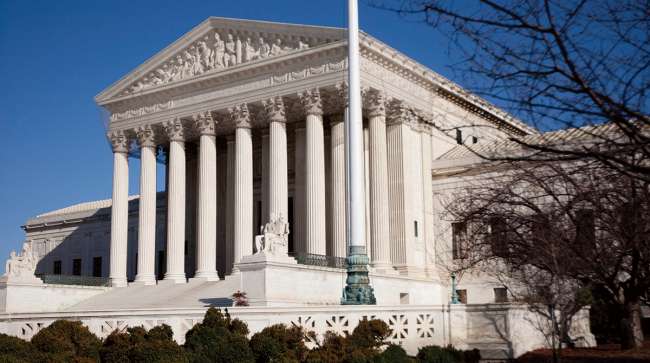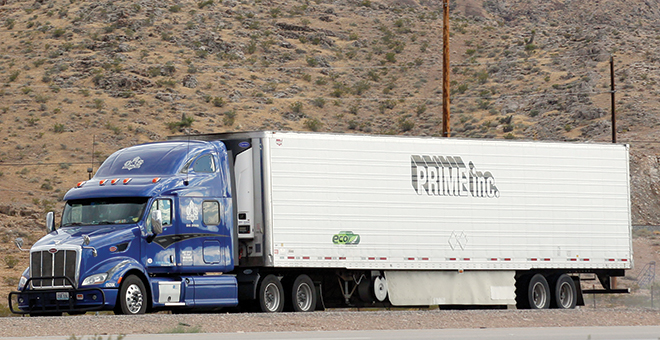Senior Reporter
Supreme Court Agrees to Hear Prime Inc. Dispute Over Arbitration

The U.S. Supreme Court has agreed to hear a case in which a Springfield, Mo.-based motor carrier seeks to overturn an appeals court ruling that the carrier argued could deprive fleets and owner-operators alike of their right to resolve disputes through arbitration.
On Feb. 26, the high court announced it will review a 2015 class-action lawsuit filed by independent operator Dominic Oliveira that alleged that Prime Inc. violated state and federal law by failing to pay him, and other similarly situated New Prime drivers, minimum wage.
Prime Inc. ranks No. 18 on the Transport Topics Top 100 list of the largest for-hire carriers in North America.
In response, Prime moved to compel arbitration under the Federal Arbitration Act, based on an arbitration clause contained in the operating agreement it required Oliveira to sign.
The decades-old arbitration act attempted to facilitate the use of arbitration to speed up the dispute-resolution process and help clear the courts of congestion due to heavy case loads.

John Sommers II for Transport Topics
Prime argued in its petition for a writ of certiorari that the arbitration law generally does not exempt independent operators from complying with arbitration agreements in their employment contracts.
Prime had asserted that an independent contractor’s agreement to perform work for a carrier cannot possibly be viewed as a “contract of employment” within the meaning of the Federal Arbitration Act.
However, the 1st U.S. Circuit Court of Appeals disagreed with Prime, ruling last year that contractor arbitration agreements may not always be enforceable for independent contractors — or for company employee drivers.
The appeals court viewed the exemption expansively and “effectively eliminated arbitration as a viable means of dispute resolution for the entire transportation industry,” Prime said.
However, Oliveira’s attorneys said the decision doesn’t render arbitration agreements in the transportation industry unenforceable.
“It merely means that a small subset of those agreements must be enforced under state law, rather than federal law,” Oliveira said in court documents.
American Trucking Associations and the U.S. Chamber of Commerce have filed “friend of the court” briefs in support of New Prime.
The case will likely be scheduled for argument in the fall, ATA said.
“The appeals court ruling means now carriers can’t rely on the arbitration act at all when it comes to their relationships with drivers,” Richard Pianka, deputy general counsel for ATA, told Transport Topics. “But we’re fairly optimistic that the court granted review to assert Congress’ policy in favor of arbitration.”
The chamber said the appeals court decision announcing that the arbitration act does not apply to independent contractors in the transportation industry conflicts with the decisions of two appellate courts and numerous other courts.
Many of the chamber’s members and affiliates regularly rely on arbitration agreements in their contractual relationships, the chamber said.
“Arbitration allows them to resolve disputes promptly and efficiently while avoiding the costs associated with traditional litigation. Arbitration is speedy, fair, inexpensive and less adversarial than litigation in court,” the chamber said.




